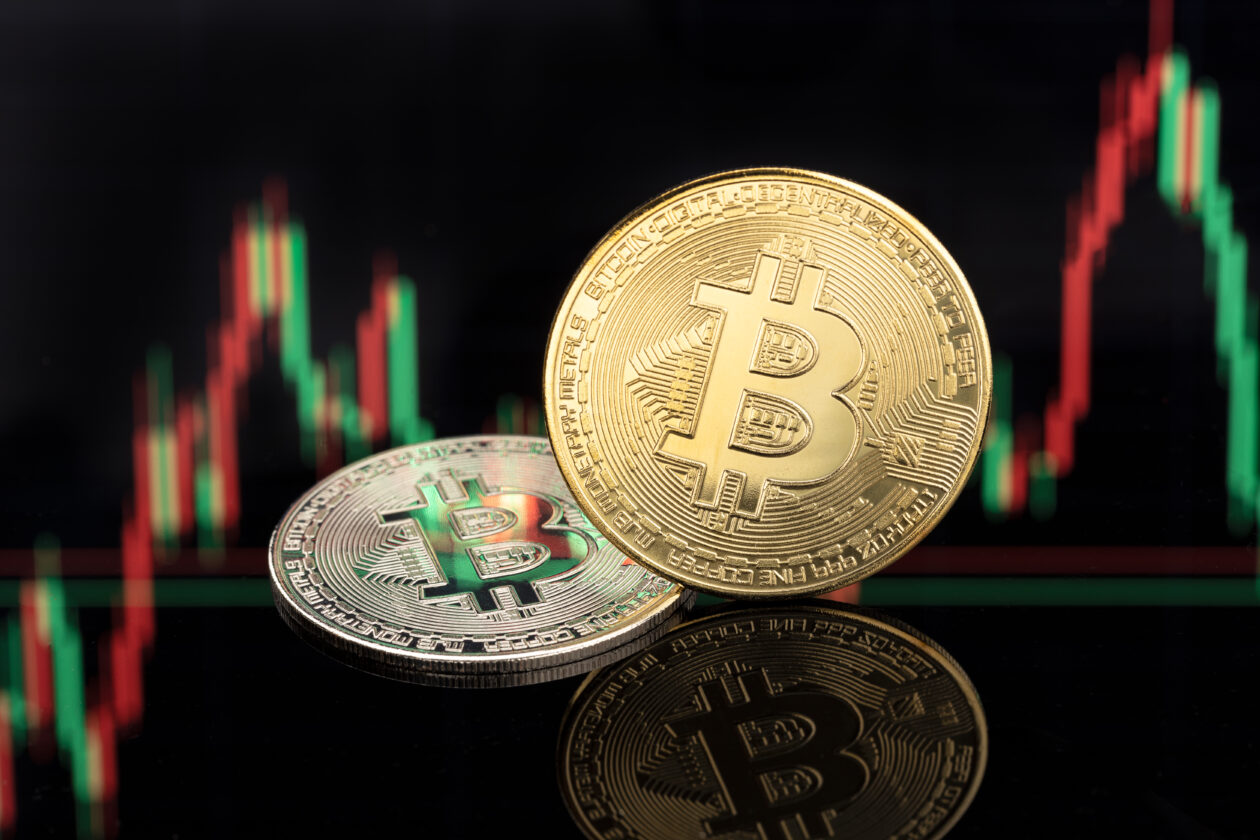Bitcoin, Ether and most other top ten non-stablecoin cryptocurrencies dipped Thursday morning in Asia. The market lost some of the ground it made up Wednesday following a favorable U.S. court ruling for Grayscale Investments in its Bitcoin ETF case against the U.S. Securities and Exchange Commission (SEC). Elsewhere, U.S. equity futures were trading flat following four straight days of advances across the three major indexes. Weaker than expected economic data has raised hopes of another pause for interest rate hikes. Investors now await the release of U.S. jobs data Friday.
Some way to go
Bitcoin dropped 1.35% over the last 24 hours to US$27,248.34 as of 06:55 a.m. in Hong Kong. The token is up 3.04% for the week, according to CoinMarketCap data. The world’s leading cryptocurrency briefly rose above US$28,000 during the early hours of Thursday morning.
Ether also posted losses. It fell 1.57% to US$1,702.62 over the past 24 hours for a 1.60% weekly gain. All other top ten non-stablecoin cryptos posted losses, with Solana’s SOL leading the losers with a dip of 4.28%. Toncoin was the only top ten crypto to post a gain. It rose 0.28% over the past 24 hours.
The losses across most of the market followed a day of gains Wednesday on the back of a favorable U.S. court ruling for Grayscale Investments in its ongoing legal dispute with the SEC.
The Connecticut-based digital asset management firm filed a lawsuit against the SEC in June 2022 following the rejection of the company’s proposal to convert its GBTC Bitcoin fund into a spot Bitcoin exchange-traded fund (ETF). A U.S. appeals court overturned the SEC’s refusal Tuesday, opening up a potential avenue for approval.
In light of the news, Nigel Green, founder of financial management group deVere, said spot Bitcoin ETFs are now an “inevitability” that will cause another bull run in the market. “The court’s decision destroys the SEC’s central argument for rejecting every spot Bitcoin ETF over the last few years. This win paves the way for Bitcoin ETFs,” he said in an emailed comment.
“ETFs typically involve the purchase of the underlying asset by the fund managers. If Bitcoin ETFs follow this structure, it could create a substantial demand for actual Bitcoins to back the ETF shares,” Green said.
Bitcoin’s next halving event is expected to take place in April 2024. The halving event will see the amount of new Bitcoin issued cut in half, increasing its scarcity. Increased demand caused by ETF approval coupled with the limited supply of Bitcoin will lead to a surge in the token’s price, Green said.
Matteo Greco, a research analyst at digital asset investment firm Fineqia International, took a less bullish view. He pointed out that Grayscale’s favorable court ruling is just one part of an application process that is still incomplete.
“The decision of the court is of course important but doesn’t change anything for now,” Greco said in an emailed statement.
“Grayscale obtained the chance of seeing their filing re-evaluated by the SEC as the causes of rejection did not seem fair to the judge,” Greco continued. “It doesn’t mean that now Grayscale will be 100% able to list a spot Bitcoin ETF, nor that this will happen in the future.”
Other major U.S. financial institutions including BlackRock, Fidelity, Invesco and WisdomTree have filed their own ETF applications. The SEC is scheduled to rule on each of the applications this week. However, the regulator delayed a decision on Ark Investment Managament’s ETF application in early August and could do so again.
The total crypto market capitalization fell 1.41% to US$1.09 trillion, and trading volume dropped 38.98% to US$32.02 billion.
US data weaker than expected

U.S. stock futures edged up as of 08:40 a.m. in Hong Kong. Gains for all three major indexes during regular session trading Wednesday marked a fourth consecutive day of growth.
Weaker than expected U.S. economy data has raised hopes that the Federal Reserve will keep interest rates unchanged in its September meeting. Wednesday’s U.S. gross domestic product (GDP) report for the second quarter recorded a lower-than-expected annual growth rate of 2.1%. The figure was down on the 2.4% reported in July.
“The downgrade to second-quarter GDP growth will be welcomed by Fed officials and reinforces our expectations for a policy pause in September but the door will remain open to further tightening,” Lydia Boussour, senior economist at New York-based financial strategy firm EY-Parthenon, told Reuters.
The Labor Statistics Bureau also reported weaker-than-expected job openings data Tuesday, which stood at 8.82 million compared to the expected 9.46 million. The figure, which is its lowest since March 2021, points to a slowing labor market.
Investors now look ahead to the release of July’s personal consumption expenditures (PCE) price index later on Thursday, followed by weekly jobless claims data on Friday.
Meanwhile, the main Asia equities markets were trading mixed Thursday morning in Hong Kong. China’s Shanghai Composite, Japan’s Nikkei 225 and South Korea’s Kospi gained while Hong Kong’s Hang Seng Index edged slightly lower.
Asian stocks were affected by news that China’s manufacturing activity shrank for the fifth consecutive month. China’s non-manufacturing purchasing managers’ index also hit a yearly low as the nation’s economy feels the strain of an ongoing crisis in the real estate sector.
(Updates to add equities section)






